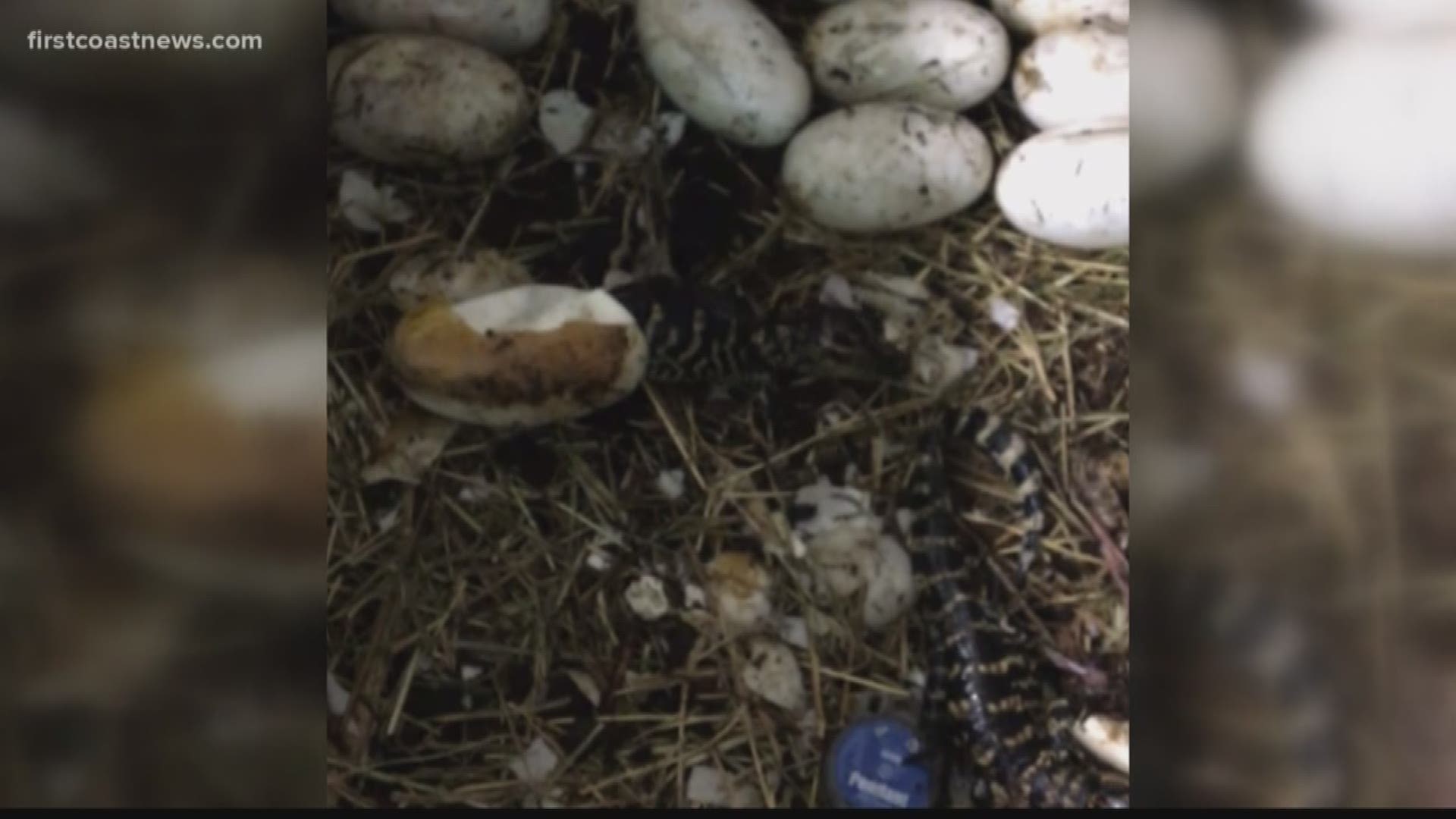JACKSONVILLE, Fla. - The first alligators are beginning to hatch as part of a University of North Florida experiment to determine the impact of climate change on the alligator population.
“Nobody’s ever done an experiment like this before,” Dr. Adam Rosenblatt, an assistant professor of biology at UNF, said. Rosenblatt is leading a team of students on the project.
The experiment consists of 400 alligator eggs, divided into 20 nests. Half of the nests are wrapped in plastic to warm them and simulate climate change. The sex of alligators is determined not by genetics, but by the temperature in the nest.
“Typically really hot temperatures produce females,” Rosenblatt said. “So in a future climate here in Northeast Florida, if you have populations that have 90 percent, 95 percent females, that could lead to declines in the population rates.”
One nest hatched Saturday and another on Tuesday. About 300 eggs remain.
Once hatched, the baby alligators will stay in a UNF lab for a few days before moving to the zoo for continued monitoring. The research team will try to determine the sex of the alligators in a couple weeks and then confirm their findings in a couple months.
“At that point, we’ll figure out how many males, how many females we have, and whether our warming treatment that we applied to these nests had any effect on the male-female balance,” Rosenblatt said.

